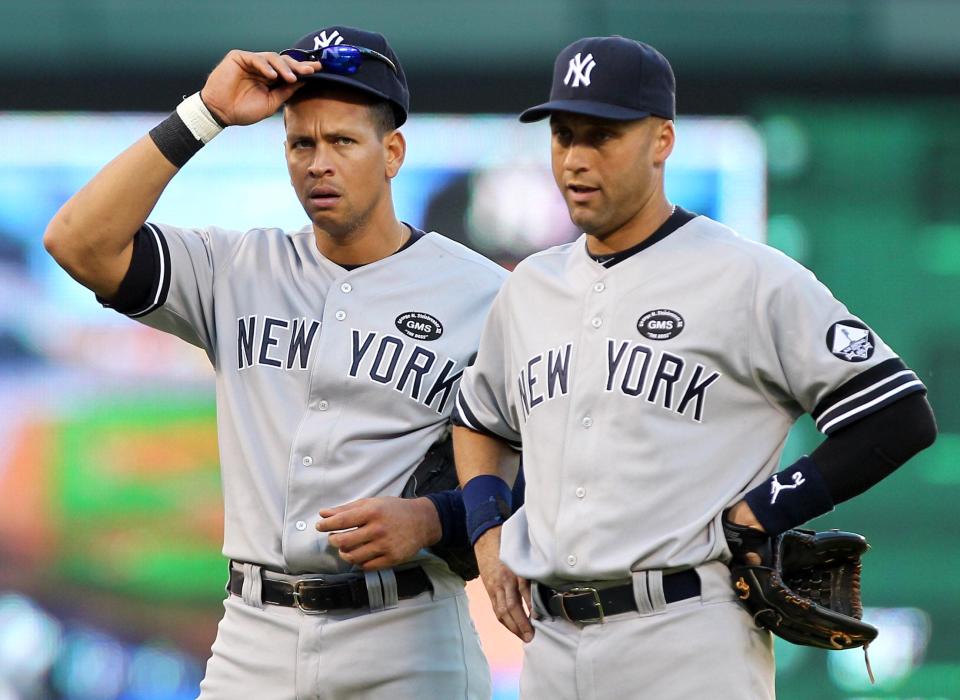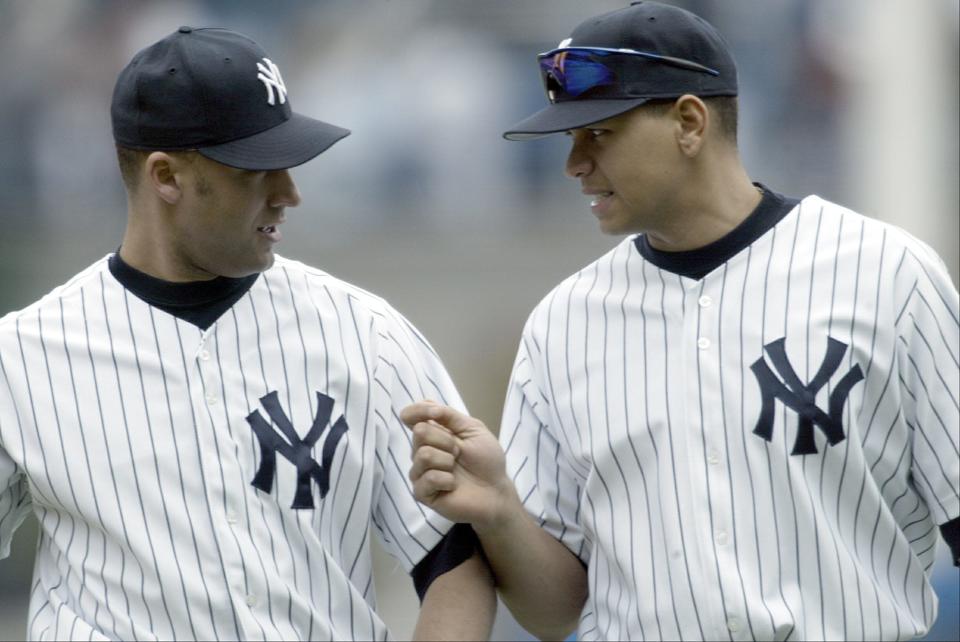Alex Rodriguez was late.
The former MLB slugger had one hour – maybe 75 minutes – to be interviewed for “The Captain,” ESPN’s seven-part documentary series about Derek Jeter. It didn’t matter.
“He was great with us,” director and producer Randy Wilkins told USA TODAY Sports. “We made the most out of the time that we had.”
And that may be underselling it. Rodriguez shows up around 20 minutes into Episode 2 and his presence looms over the rest of the series (only the first five installments were available to the media).
Often in the film, Jeter reveals more in what he doesn’t say about Rodriguez. It’s evident their relationship is rooted in respect but icy at best.
“I appreciate both of them speaking their truths about their professional relationship and personal relationship over the years,” Wilkins said.


The Esquire article
Of course, Jeter won four World Series rings in five years while Rodriguez tallied numbers with little glory in Seattle. Then came the Scott Raab interview in Esquire magazine. Rodriguez said Jeter never had to lead while on the Yankees and the captain never looked at Rodriguez the same way.
“In my mind, he got his contract, so you’re trying to diminish what I’m doing, maybe to justify why you got paid. When you talk about statistics, mine never compared to Alex’s. I’m not blind. I understand that. But, we won! You can say whatever you want about me as a player. That’s fine,” Jeter said.
Rodriguez had signed a record 10-year, $252 million deal with the Texas Rangers prior to the 2001 season.
“But then it goes back to the trust, the loyalty. This is how the guy feels. He’s not a true friend, is how I felt. Because I wouldn’t do it to a friend.”
Loyalty, loyalty, loyalty
Throughout the documentary, loyalty and discretion are two traits Jeter values intensely – especially loyalty.
Their friendship started while Rodriguez was still in high school and Jeter had just been drafted by the Yankees. They posed on magazine covers with their arms around each other. Harold Reynolds, in the documentary, says they were like brothers.
“Those comments bothered me because, like I said, I’m very, very loyal,” Jeter said in the film. “As a friend, I’m loyal. I just looked at it as, ‘I wouldn’t have done it.’ And then it was the media. The constant hammer to the nail. They just kept hammering it in. It just became noise, which frustrated me. Just constant noise.”
Odd couple in the Bronx
That noise got even louder during the 2003-04 offseason. Rodriguez attempted to orchestrate a trade to the Boston Red Sox to create baseball’s version of Larry Bird vs. Magic Johnson, he said. A deal was in place, but the MLBPA ended up nixing it due to the proposed alterations to his contract.
Rodriguez retold a story of drinking while sitting next to Yankees general manager Brian Cashman at the Baseball Writers’ Association of America annual dinner where he accepted his 2003 MVP award. That’s where the idea of him playing third base for the Yankees was first discussed.
Jeter was with his father, Charles, at his home in Tampa, Florida, when George Steinbrenner called and said they were acquiring Rodriguez pending his approval.
“It was made very clear Alex was being acquired to play third base,” said Jeter, who added he wouldn’t have said there was an issue even if there was.


Alex Rodriguez knew he was villain, Derek Jeter was hero
Cashman and manager Joe Torre wanted Jeter to publicly support Rodriguez, but the captain’s endorsement came tacitly at best. The documentary highlights Jeter’s apparent displeasure of having to introduce Rodriguez as a Yankee.
“Derek, in like so many ways, was perfect,” Rodriguez said in the film. “I was goofy as hell. He was perfect as hell. I’m an easy guy to cheer against. He’s an easy guy to cheer for. I mean yeah, that’s the way it rolls.”
As Baseball America writer Alan Schwarz says in the film:
“Derek Jeter wanted to be a Yankee. Alex Rodriguez wanted to be a star.”
Derek Jeter blames early ’04 struggles on A-Rod’s arrival
The friction between the two stars was an easy target for the press, according to Jeter. He wanted to keep the focus on winning.
“The issues that we had in the past, I’m over (it),” Jeter said then and in the documentary.
Jeter, who hit .190 in his first 43 games of the 2004 season, partially attributed his slump to Rodriguez’s arrival.
“It’s easy to say … it could have played a part, because there is so much attention now on individuals instead of the team and winning,” Jeter said. “Fair to say it played a part.”
In hindsight, Rodriguez – ever the showman – wished the original plan of him in Boston worked out, with the two competing as opposing shortstops in baseball’s best rivalry at the time.
‘What’s your agenda?’
Jeter couldn’t understand why Rodriguez would join in his prime to play third base.
“What’s your agenda?” Rodriguez remembered Jeter asking him during a rain delay in Chicago.
“I said ‘I came here knowing the captain of the team and a four-time world champion was the shortstop,'” said Rodriguez, who went so far as to say he’d refuse a directive from late owner George Steinbrenner to play shortstop.
In the end, Rodriguez stuck at the hot corner. Jeter retired after the 2014 season and Rodriguez stepped away two years later.
“You got to give him credit on that,” Jeter said.
Follow Chris Bumbaca on Twitter @BOOMbaca.
This article originally appeared on USA TODAY: Derek Jeter, Alex Rodriguez rift explored in ESPN ‘The Captain’ doc
